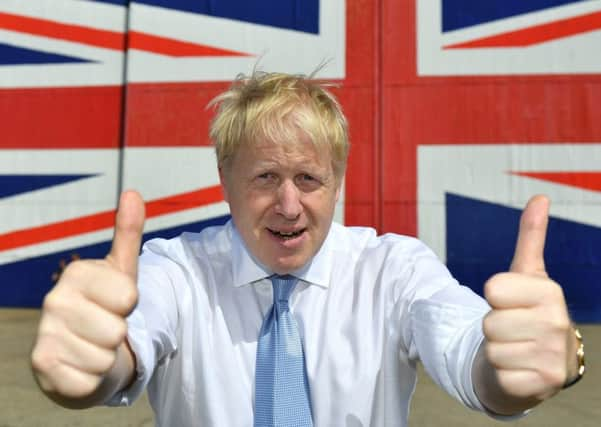Analysis: Boris Johnson faces huge challenge to win over Scottish voters


It’s a strange state of affairs when the reception for an incoming Tory prime minister is just as frosty from within his own party in Scotland as it is from his political opponents.
Ruth Davidson’s reaction to Boris Johnson’s victory in the Tory leadership was certainly less than effusive. In a statement that offered congratulations, she largely focused on her own priorities in the role north of the Border, including protecting the country’s place within the UK. Does Ms Davidson fear the new man may turn out to be more of an obstacle to keeping the UK together?
Advertisement
Hide AdAdvertisement
Hide AdThe fraught relationship between the pair is no secret, with the Pro-Remain Scots Tory leader having angrily clashed with the incoming prime minister as the nation looked on during the Brexit campaign in a live televised debate.
Relations don’t seem to have eased much recently, with Mr Johnson having reportedly been barred from the recent Spring Scottish Tory conference in Aberdeen. Ms Davidson certainly faces a different dynamic in her relations with Downing Street than she enjoyed with Theresa May. An open door approach doesn’t seem likely from the new regime – and even if it did, the feisty Scots Tory leader might be inclined to slam it shut.
Senior Nationalists certainly feel Mr Johnson’s elevation to the highest office in the UK can only boost the case for independence. Not only does he have no mandate in Scotland, it is claimed, but he is totally out of touch with the Scottish electorate.
Mr Johnson has made it clear he won’t yield when Nicola Sturgeon comes calling to demand a Section 30 order that would see a transfer of power to Holyrood to allow a second referendum on independence.
But there is a sense that his election will see the recent movement in Scottish polling towards independence manifest itself in a consolidated majority for Yes. That would mark an unprecedented scenario for pro-Union leaders in Scotland as demands for another referendum become deafening. But for all the bluster, Mr Johnson has shown that he is a vote winner – and not just among the Tory faithful. If he can win votes in inner London, then why not in Scotland?
But even in an era where volatility is the new political norm and all the old party loyalties have disappeared, the new PM faces a huge challenge to win over Scots with his “can-do” charge towards Brexit when almost two-thirds of Scots voted to remain in the EU.